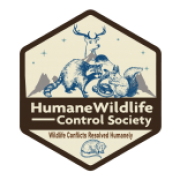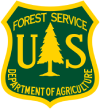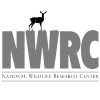Humane Wildlife Control in Tallahassee, FL
The Humane Wildlife Control Society recommends non-invasive solutions to resolve human-wildlife conflicts. This includes:
Determining if the issue needs to be addressed at all
Opting for preventative measures first
Opting for wildlife exclusion as opposed to trapping
If trapping is the only way to solve the problem do so humanely
The Humane Wildlife Control Society screens candidates prior to recommendation. Our process requires any company we recommend to meet the following criteria:
Is properly licensed in Florida for wildlife control
Carries appropriate business licenses and insurance
Complies with all Florida laws and regulations for wildlife control
Adheres to the humane principles listed above.
In Tallahassee, Florida we recommend Humane Wildlife Removal Tallahassee for professional wildlife control services. This is a private company that charges for their services.
Contact Information:
Wildlife Removal Tallahassee
850-252-1720
If you have any wildlife issues that can be handled by the state government agency for free, the Florida Wildlife Commission can help.
State Contact Information: 888-404-3922
The State Department of Agriculture may also be able to address your wildlife problem for no charge.
USDA Contact Information: (800) 435-7352
Wildlife Conservation and Control in Tallahassee, Florida
Overview
Tallahassee, Florida’s capital city, maintains a delicate balance between urban development and wildlife preservation. The region’s subtropical climate and diverse ecosystems support abundant wildlife while presenting unique conservation and control challenges.
Key Wildlife Species
Tallahassee hosts numerous native species including white-tailed deer, black bears, alligators, various birds of prey, and numerous migratory bird species. The nearby Apalachicola National Forest and St. Marks National Wildlife Refuge serve as critical habitats for these species.
Conservation Initiatives
The Florida Fish and Wildlife Conservation Commission (FWC) leads conservation efforts in the Tallahassee region through several programs:
The Tallahassee-Leon County Urban Forest Master Plan protects critical wildlife corridors and green spaces. Local organizations such as the Apalachee Audubon Society and the Tallahassee Museum contribute to conservation education and habitat restoration projects. The city has implemented the Blueprint 2000 program, which allocates funds for greenway acquisition and ecological preservation.
Wildlife Management Challenges
Human-wildlife conflicts have increased as Tallahassee’s urban footprint expands. Black bear encounters in residential areas have become more common, particularly during drought conditions when natural food sources are limited. Invasive species, including feral hogs and Cuban tree frogs, threaten native ecosystems and require ongoing control measures.
Regulatory Framework
Wildlife management in Tallahassee operates under Florida state laws and municipal ordinances. The FWC enforces state regulations while local authorities handle nuisance wildlife complaints within city limits. Permits are required for wildlife relocation, and strict regulations govern the management of protected species.
Best Practices for Residents
Tallahassee residents are advised to secure garbage containers, remove outdoor pet food, and maintain bird feeders properly to prevent attracting unwanted wildlife. The city provides resources for non-lethal deterrents and education on coexisting with local wildlife. The FWC operates a Wildlife Alert Hotline for residents to report nuisance wildlife or suspected violations of conservation laws.
Future Directions
Tallahassee continues to develop comprehensive wildlife management strategies that balance conservation with public safety concerns. Ongoing habitat restoration projects and public education campaigns aim to foster sustainable coexistence between humans and wildlife in Florida’s capital region.







